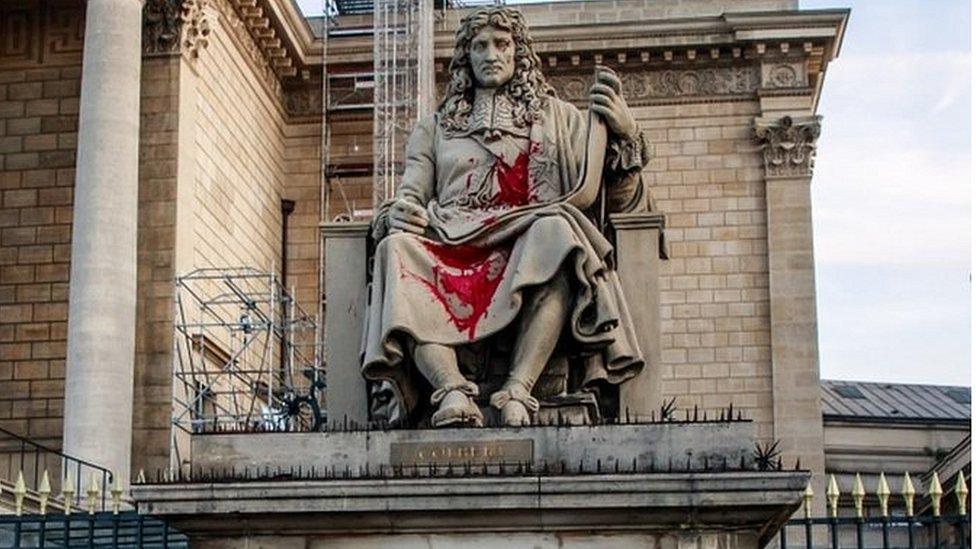Amsterdam mayor apologises for city's role in slave trade
- Published
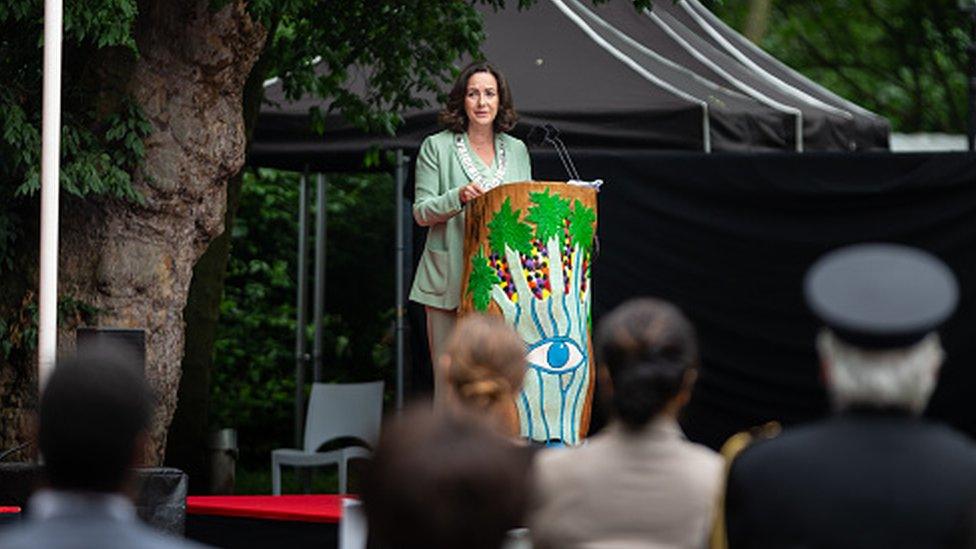
Amsterdam Mayor Femke Halsema said the moment had come for the city to confront its history
The mayor of Amsterdam in the Netherlands has formally apologised for the city's role in slavery, as the country reckons with its colonial past.
Femke Halsema said it was "time to engrave the great injustice of colonial slavery into our city's identity".
The apology came during an annual holiday that marks the end of slavery in Dutch colonies in the 1800s.
Last year the city council voted for an apology and an advisory panel has told the national government to follow suit.
"I apologise for the active involvement of the Amsterdam city council in the commercial system of colonial slavery and the worldwide trade in enslaved people," Ms Halsema said in a speech on Thursday.
The mayor said while it was right to acknowledge the legacy of slavery, "not a single Amsterdammer alive today is to blame for the past".
The apology puts the left-wing mayor at odds with centre-right Dutch caretaker prime minister Mark Rutte, who is currently in talks to form a new government.
Mr Rutte rejected calls for a formal state apology last year as protests triggered by the death of George Floyd in police custody swept the globe.
In parliamentary debate on racism, Mr Rutte said such an apology could polarise society and bring back painful memories for some.
However, his government did commission an independent advisory panel to make non-binding recommendations on issues of race and discrimination.
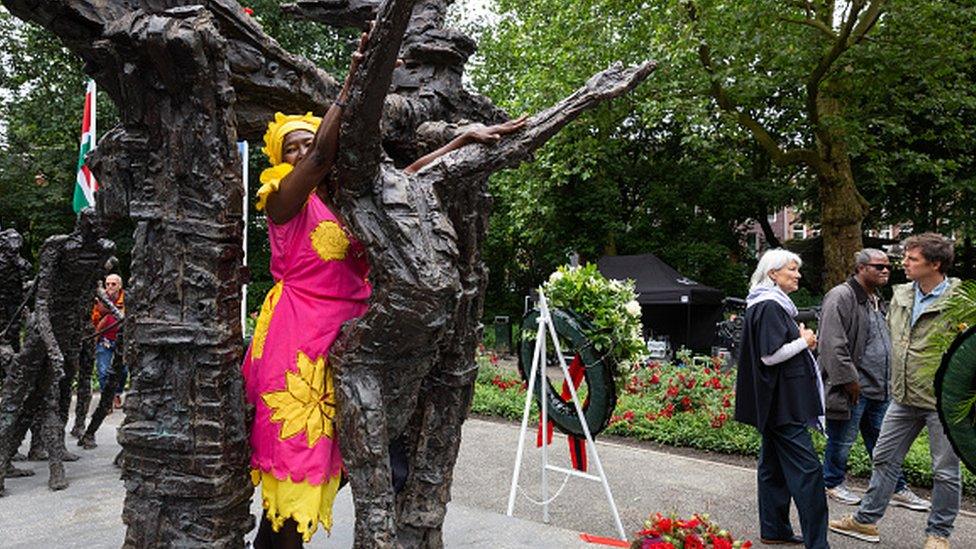
The mayor delivered the speech during Keti Koti, the annual commemoration of the abolition of slavery in the Netherlands
The panel released its report on Thursday. The report said the country's awareness of its colonial past was poor and recommended it be taught in schools.
The panel advised the government to apologise for Dutch involvement in the global slave trade, which it said was responsible for crimes against humanity.
Apologies for slavery have been issued by other countries, including the UK, the US and France.
What was the Dutch role in the slave trade?
The transatlantic slave trade involved the forced movement of people from the African continent to the Americas between the 16th and 19th centuries.
During this era, the Netherlands had extensive colonies in the regions now known as Indonesia, South Africa, Curaçao, New Guinea - and beyond.
Colonising these regions helped the Netherlands become a global economic power. Its wealth grew over 200 years through the Dutch East India Company (VOC), which played a leading role in the slave trade.
The company operated a chain of trading outposts in West Africa, from which slaves were shipped across the Atlantic.
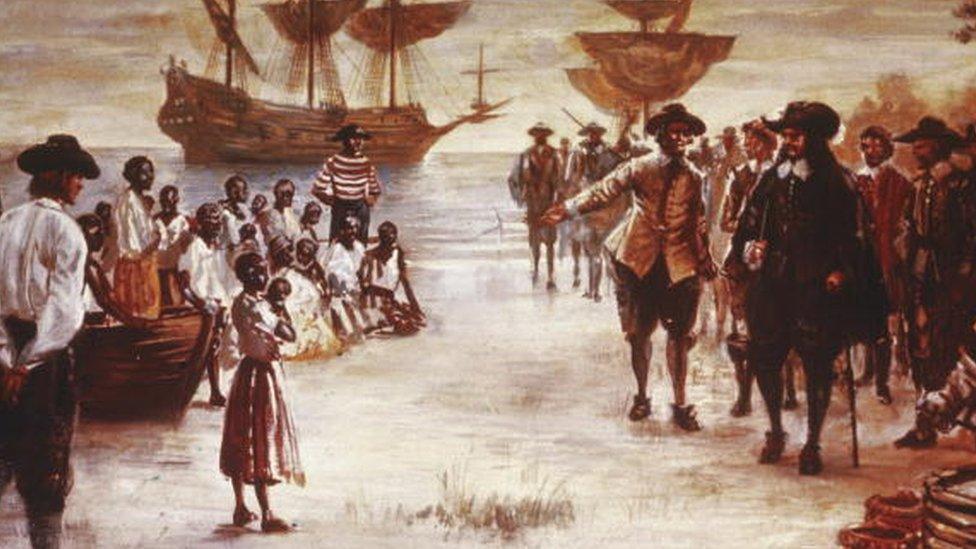
Dutch ships transported slaves across the Atlantic
Amsterdam's city council says some of its most senior officials were deeply involved in the slave trade.
Ms Halsema said research showed that "from the end of the 16th Century until well into the 19th Century, Amsterdam's involvement was direct, worldwide, large-scale, multifaceted and protracted".
The Dutch national museum, the Rijksmuseum, external, says the Netherlands was one of the last countries to abolish slavery. It did so in 1863, when slavery was officially abolished in the main Dutch colony of Surinam in South America.
The anniversary of that moment is celebrated every 1 July and is known as Keti Koti, which means Chains Broken.
What reaction has there been to the mayor's apology?
Dutch TV presenter Charisa Chotoe tweeted that she was deeply touched by the apology, external.
Speaking to Dutch broadcaster NOS, external, researcher Pepijn Brandon said the apology was a step towards addressing racial injustices still felt today.
"Of course it wasn't the case that when slavery was abolished that inequality suddenly vanished," said Mr Brandon, a professor at the Vrije Universiteit Amsterdam. "Colonialism carried on and the hierarchy that existed at the time between white and black people continued at important moments."
But others questioned the significance and the legitimacy of the apology.
"How can an apology be the basis for a just future - where the current inhabitants have nothing to do with it - nor suffer under it?," historian and political commentator Wierd Duk tweeted, external.
Related topics
- Published18 November 2013
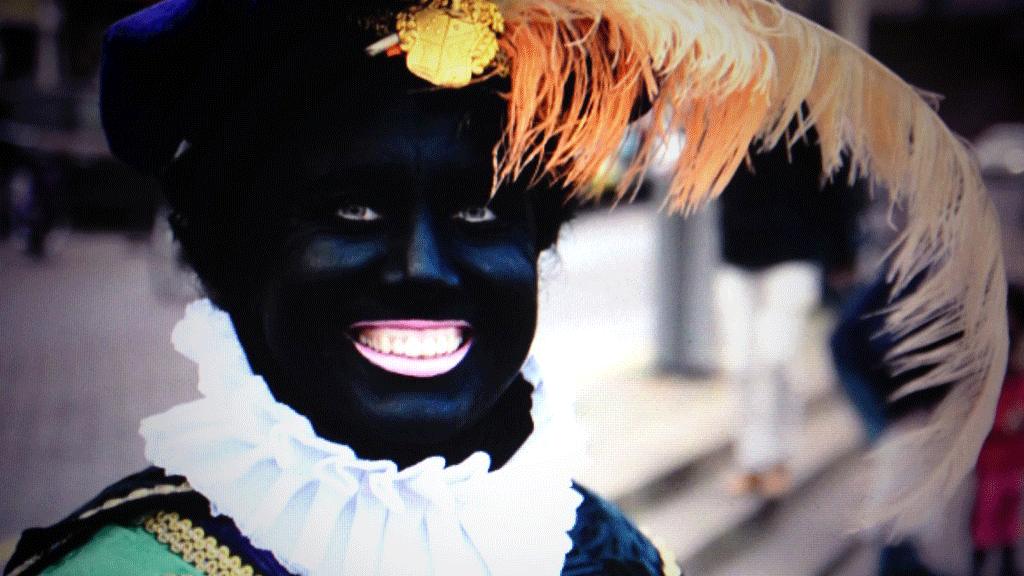
- Published13 June 2020
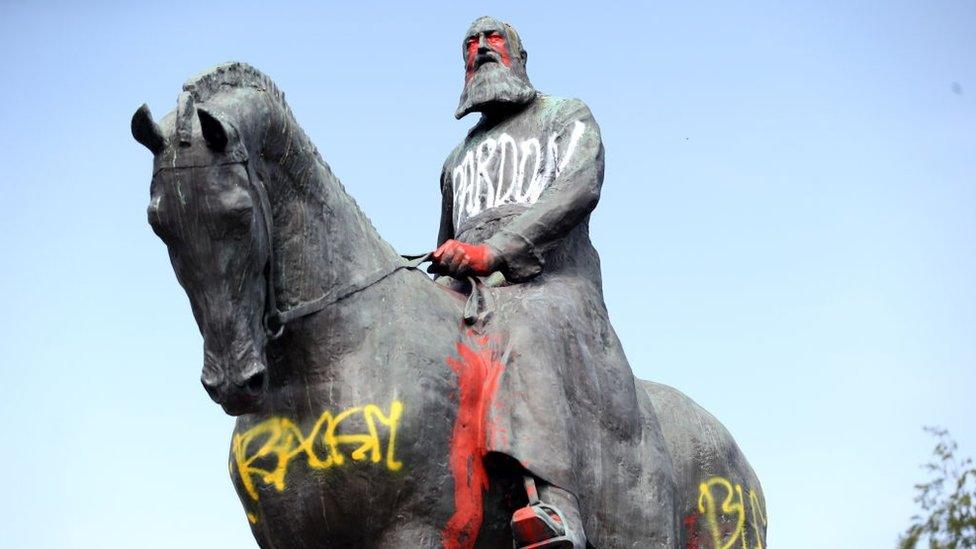
- Published24 June 2020
